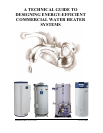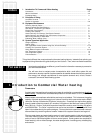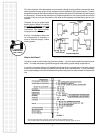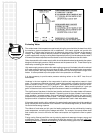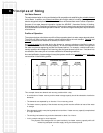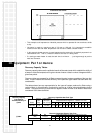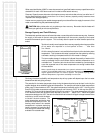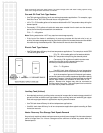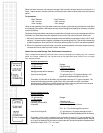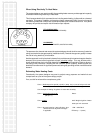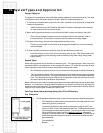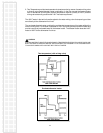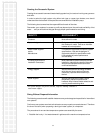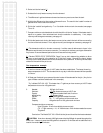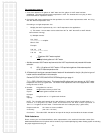
13
Creating the Successful System
Creating the successful commercial water heating system is a joint venture involving many persons
and skills.
In order to select the right system using either tank type or copper type heaters, one should
understand the role that each of the persons concerned with the installation plays.
The following chart summarizes the responsibilities for each of the roles.
Remember, your customer’s success or profit may depend upon the continued availability of hot
water . . . and you will achieve that goal through proper system selection and sizing.
IDENTITY RESPONSIBILITY
Customer Must define his needs
System designer* Designs a water heating system to satisfy
the customer’s needs. Acts as an interface
between all involved parties.
Water Heater Supplier Furnishes the equipment to meet the system
and/or specifications. May aid the designer in
Manufacturer equipment selection or specifications with
his knowledge of product performance
and availability.
Plumbing and Electrical Must understand system concept to provide
Installation Contractors installation, startup and customer instruction.
Also provide maintenance and service for
continued satisfaction.
Energy Supplier Advises characteristics of energy available
at job site and how to achieve best use.
Particularly important when electricity is
the fuel.
Water Supplier Advises characteristics of water, lowest
temperature, maximum pressure and
hardness. May influence heater selection and
use of a pressure reducing valve.
*The system designer may be the architect, engineer, installing contractor or
water heater supplier.
Sizing Without Prepared Information
The following procedures will establish heater recovery and storage tank capacities for intermittent
use systems.
Continuous use systems are sized so that heater recovery equals or exceeds demand. Therefore
the size of the tank (when proposing a tank type heater system) is unimportant.
The procedures for one and two temperature systems are essentially the same:
1. Establish the hourly 1 / hot water demand in gallons and the maximum temperature rise.



